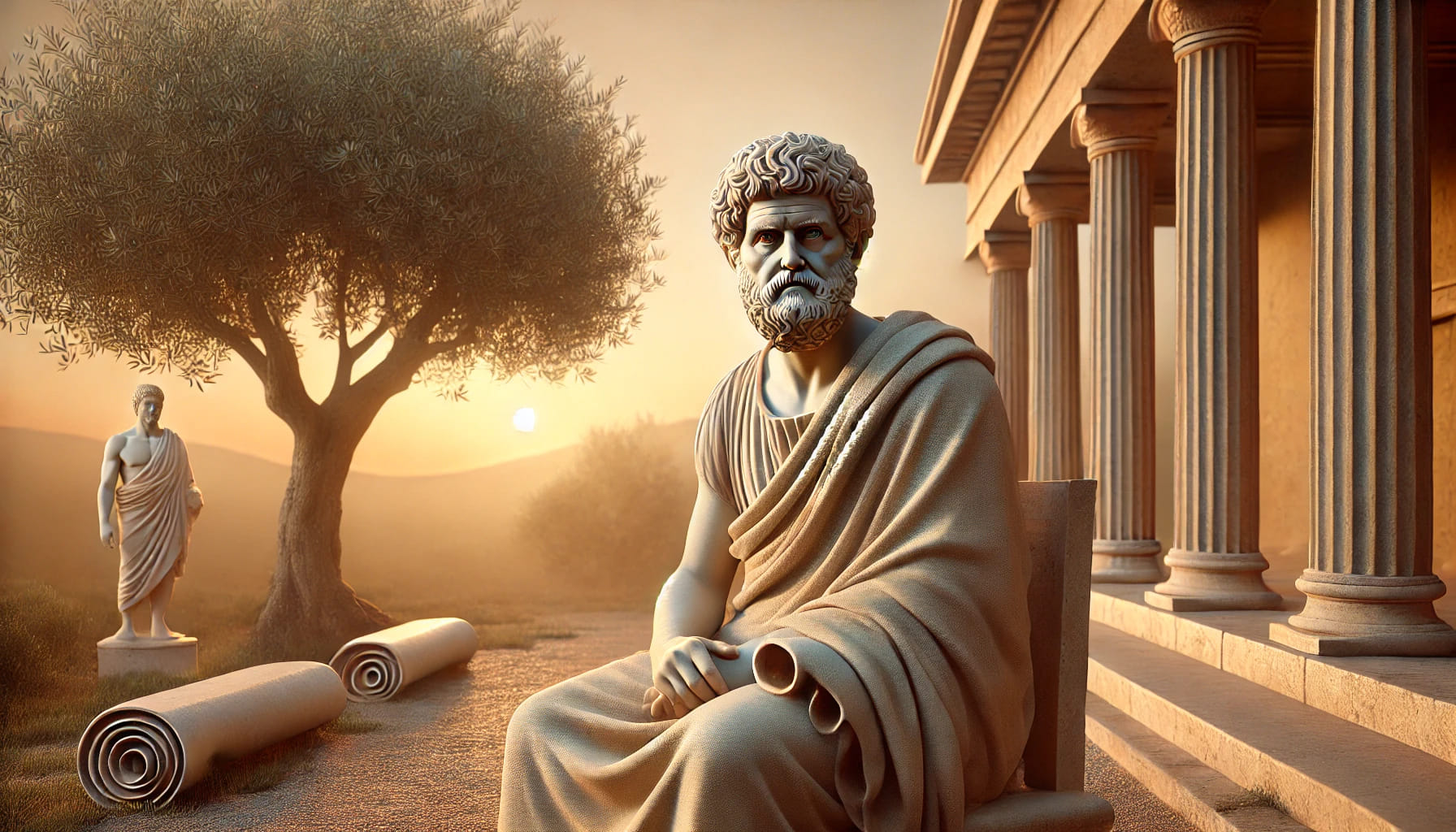Epictetus, one of the pillars of Stoicism, is remembered not only for his profound teachings but also for the humility and simplicity with which he lived his life. Although historical records don’t offer precise details about his death, the legacy he left allows us to understand how his philosophy prepared him to accept the end of his life with serenity, in line with the principles he defended. His life story and teachings remain alive today, inspiring generations to face life—and death—with dignity and wisdom.
The Life of Epictetus
Epictetus was born in Hierapolis, Phrygia (modern-day Turkey) around 55 A.D., into a slave family. At a young age, he was taken to Rome, where he served as a slave to Epaphroditus, an official close to Emperor Nero. Despite his enslaved status and a physical disability (likely a result of mistreatment by his master), Epictetus developed a profound ability to observe the world and reflect on the human condition. This capacity was nurtured by his exposure to Stoic philosophy through Musonius Rufus, who became his teacher and mentor.
Epictetus was eventually freed and established his own school in Nicopolis, Greece, where he taught until his death in 135 A.D. His life was marked by simplicity: he lived austerely, focused solely on teaching and the practice of virtue. His teachings were recorded by his student, Flavius Arrian, in the form of the “Discourses” and the “Enchiridion” (Handbook), which remain the main sources of his thought and some of the most influential works in Stoicism.
His Contribution to Stoicism
Epictetus’ thought centers on the fundamental idea that virtue is the only true good and that, to achieve it, we must learn to distinguish between what is within our control and what is not. Epictetus held that the source of peace and happiness lies in focusing only on our own actions, thoughts, and judgments, letting go of the desire to control external events, which are inevitable and, ultimately, morally indifferent.
One of the most revolutionary aspects of his philosophy is his concept of inner freedom. Though Epictetus lived as a slave and suffered physically, he did not allow his situation to define his mental well-being. For him, freedom did not depend on external conditions but on our ability to choose how we react to them. This principle led him to affirm that we are the “guardians” of our minds and emotions and that we can find peace in any circumstance if we control our reactions and desires.
The Death of Epictetus: A Stoic to the End
While there are no specific records of Epictetus’ death, his life and philosophy allow us to imagine how he might have faced it. In his teachings, he refers to death as a “natural event,” inevitable and beyond our control. For a Stoic, death is not a cause for fear but a part of life to be accepted with equanimity. Epictetus saw death as a transition that, like everything in nature, occurs in its due time. His perspective was that life itself constantly trains us to accept every loss and change with serenity, thus preparing us for the final goodbye.
His Legacy
Epictetus left an indelible mark on Western philosophy. His teachings on emotional self-management, inner discipline, and acceptance of life as it is remain as relevant today as ever. His ideas, collected in texts like the Enchiridion, invite a life based on solid principles, and his personal example shows that, regardless of circumstances, one can live according to one’s values. Epictetus passed as he lived: at peace with himself, knowing he had cultivated the only thing truly his own—his character—and left a legacy that continues to resonate with those who seek to live with wisdom and purpose.
Epictetus remains, even after death, an inspiring voice for those who wish to learn to face life’s challenges and the uncertainty of death with courage and calm.

